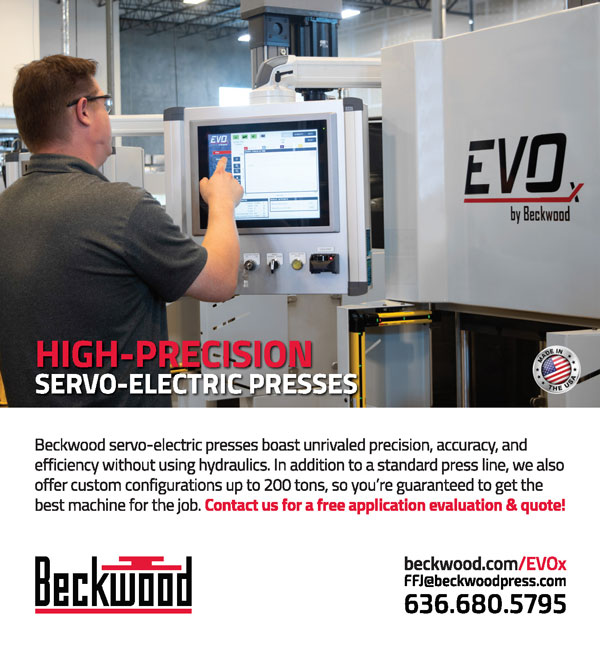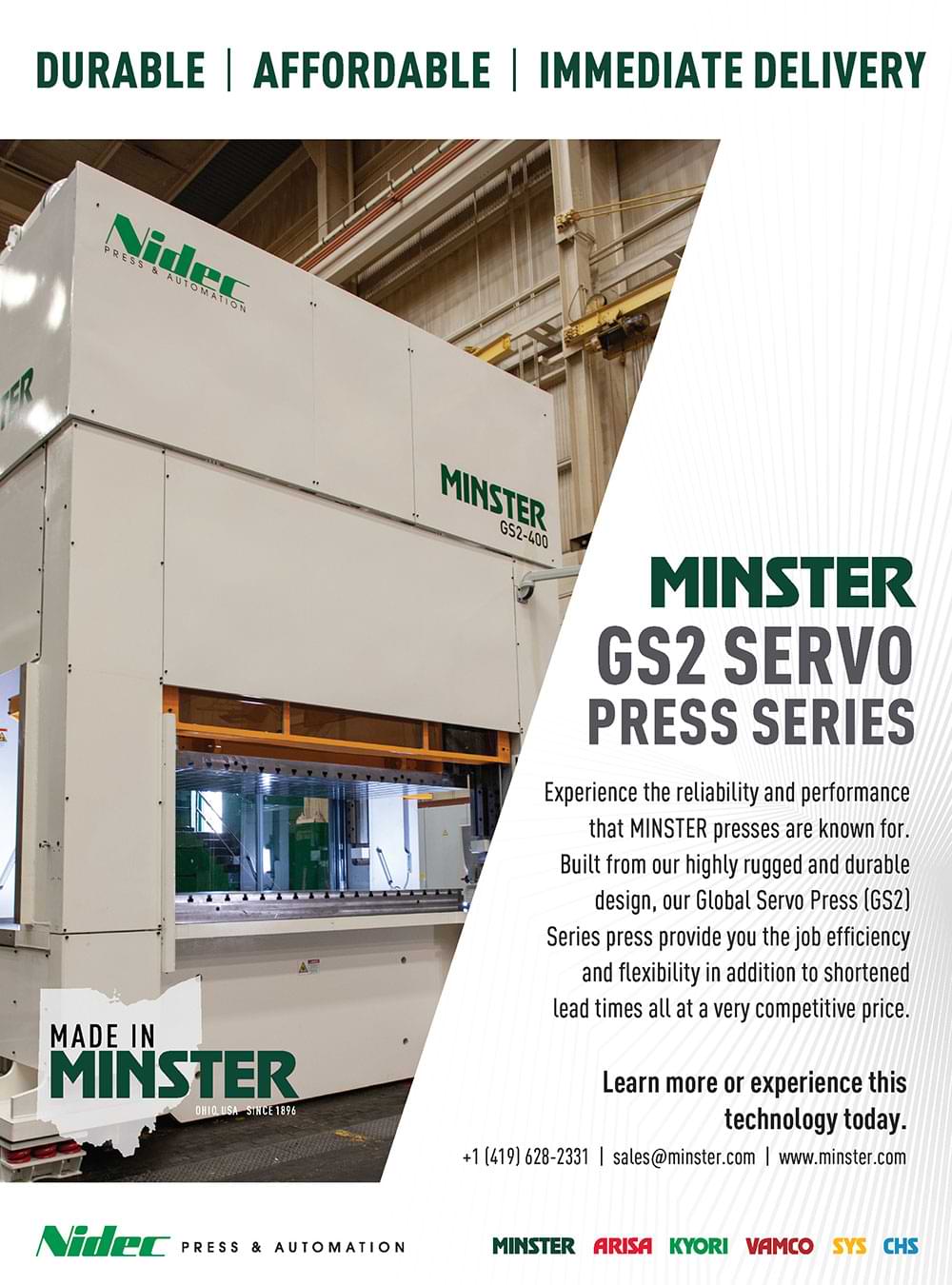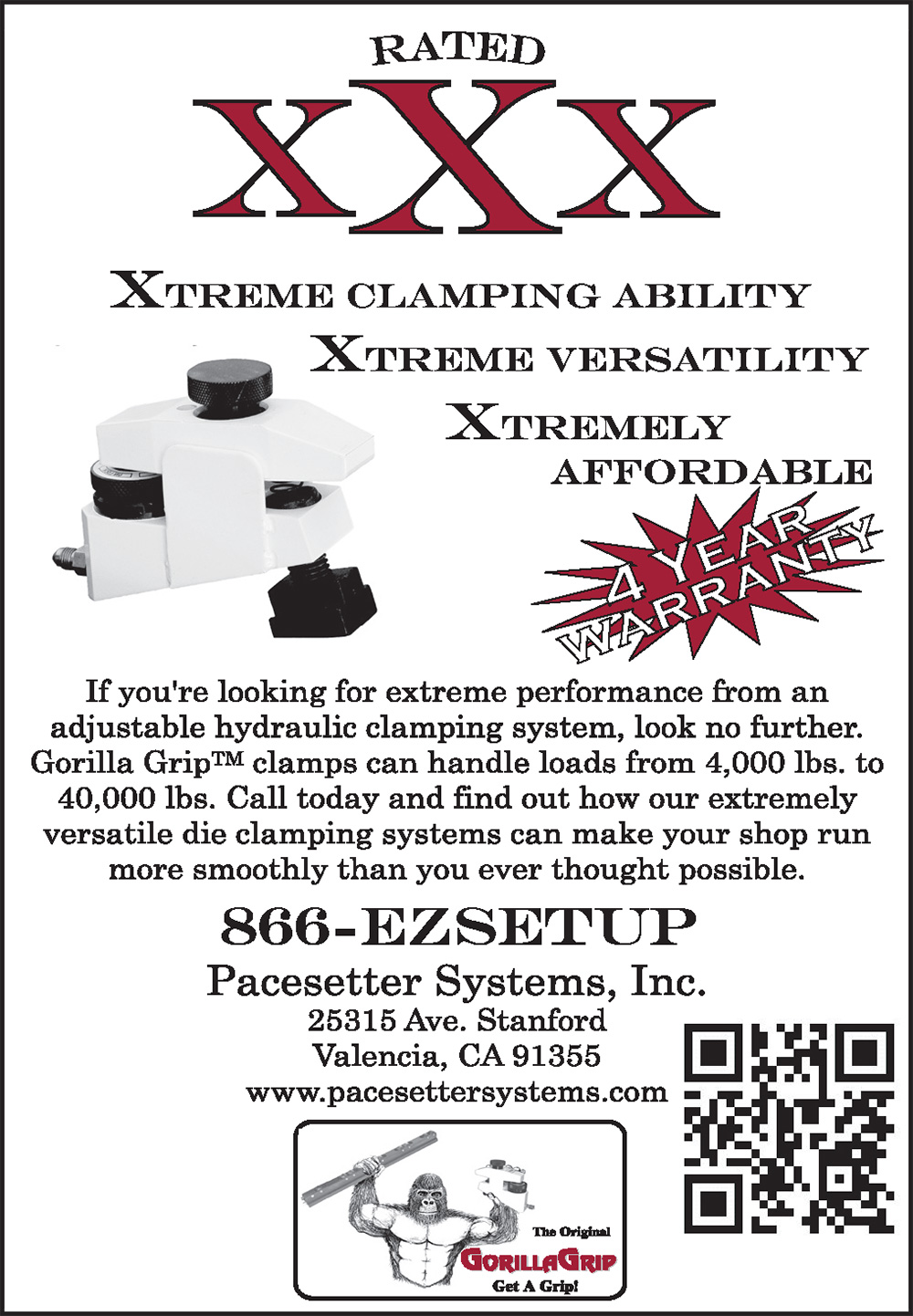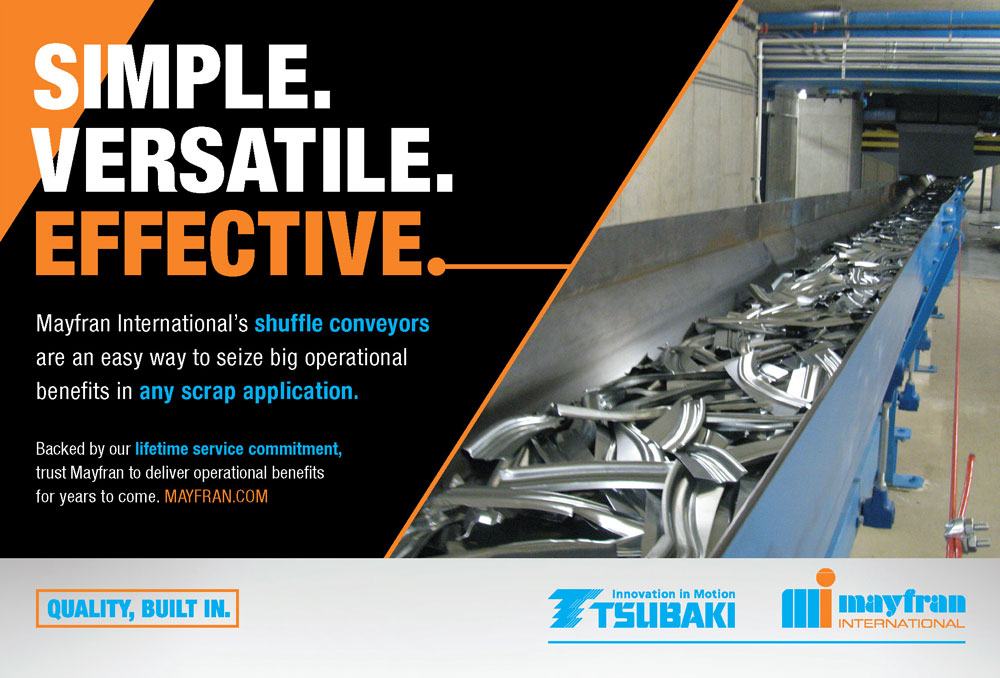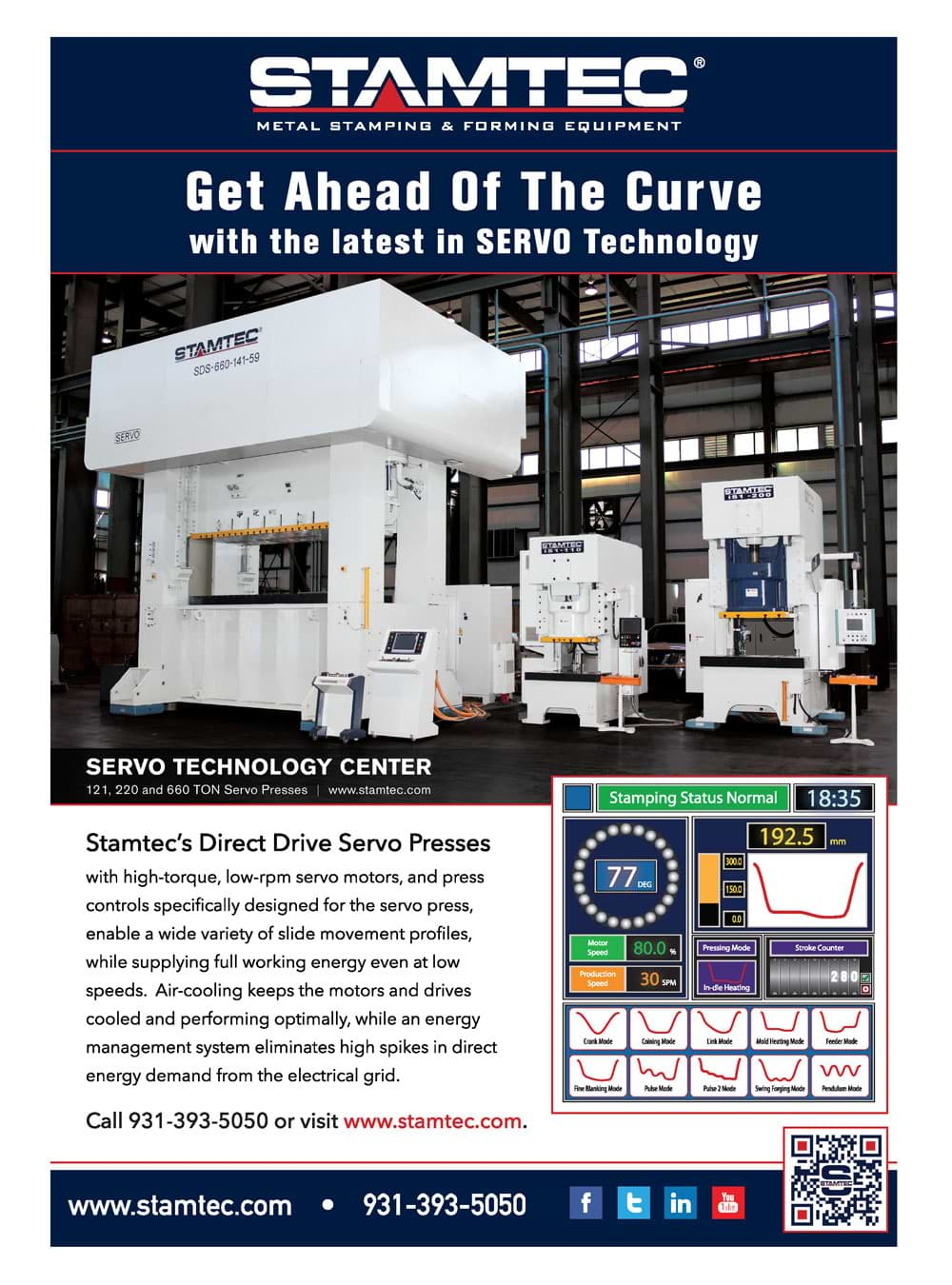processing
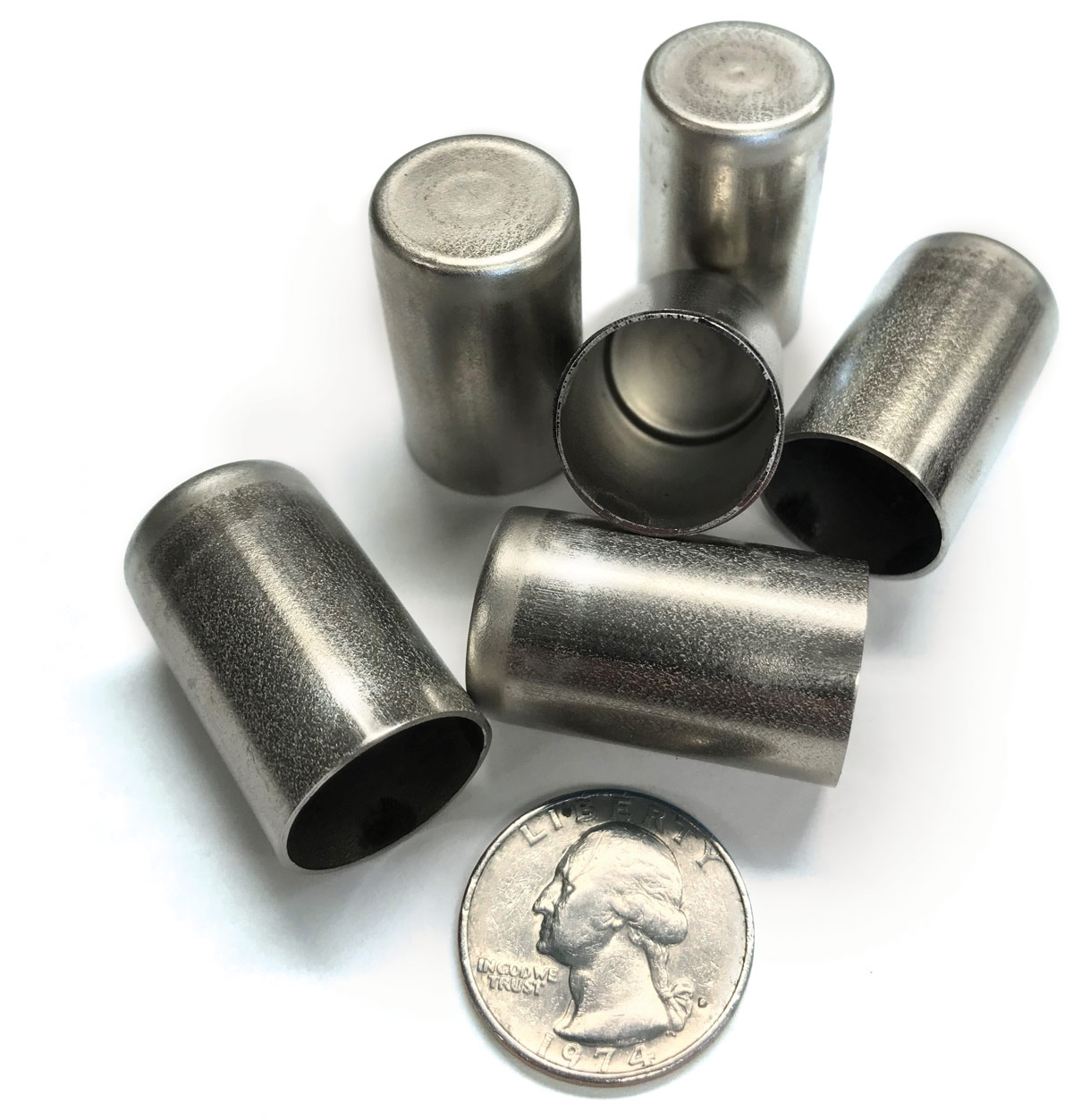
n the 1500s, the term lifeblood referred to “blood necessary for life.” Since then, the word has come to mean “the element most important to the continuing success of something.” Both definitions could apply to Engel Diversified Industries Inc. The Jordan, Minnesota-based Tier 1 and Tier 2 contract manufacturer supplies manufacturing sectors from automotive and fluid handling, to energy data transmission, defense, medical equipment and, most recently, bike racks and bakeware.
Steady growth has taken the company from 5,000 sq. ft. to 55,000 sq. ft. of combined manufacturing and office space. Part development, in-house tooling and design, fabrication and aftermarket support are part of Engel Diversified’s value-added services. But stamping remains the heart of the business.
“Stamping is our lifeblood,” says Stuart Rubin, president of Engel Diversified. “We have a lot of different skill sets but, at the end of the day, we’re metal stampers.”
Engel Diversified considered several brands but settled on AIDA-America Corps’ DSF Direct Drive 330-ton servo press. “We have an AIDA 250-ton mechanical press,” says Rubin. “We’ve had good luck with it from a performance and reliability standpoint. We were also impressed with AIDA’s service. They have been very responsive.”
When HOLP senses an overload, AIDA’s design—a patented large-diameter, metal-to-metal seal—almost instantaneously evacuates oil around the connection point’s ball seat. Reaction time can be measured in milliseconds. “The HOLP system is an inexpensive insurance policy to prevent damage to the press and tooling because it halts the slide’s downward motion once an overload is detected,” says Greg Bonczkowski, regional sales manager for AIDA.
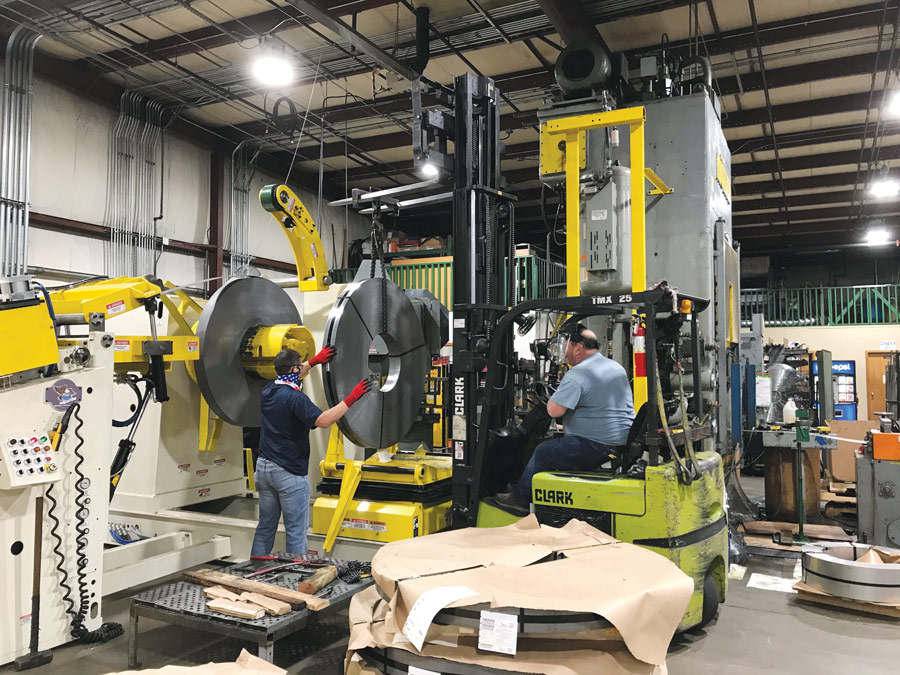
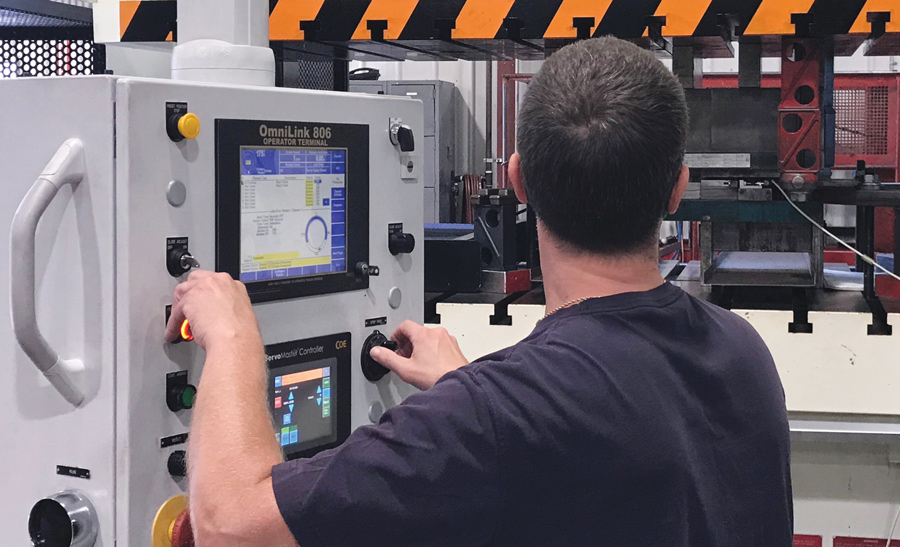
“We needed more coil capacity because our automotive applications are taking us into 7- and 8-gauge high-strength steel,” Rubin says. “Although the feed line is geared to heavier material, it only takes one technician about five minutes to change a coil.”
Engel Diversified minimizes springback by programming the press for multiple restrikes at bottom dead center to support its wipe forming and blanking operations.
“More often than not, we can address a wipe forming issue by simply adjusting press speed and dwelling at the bottom of the stroke,” says Production Manager Ken Handzel. “This ensures the form is set. On a few parts, we use the multiple restrike profile, which hits the part more than once to set the form.”
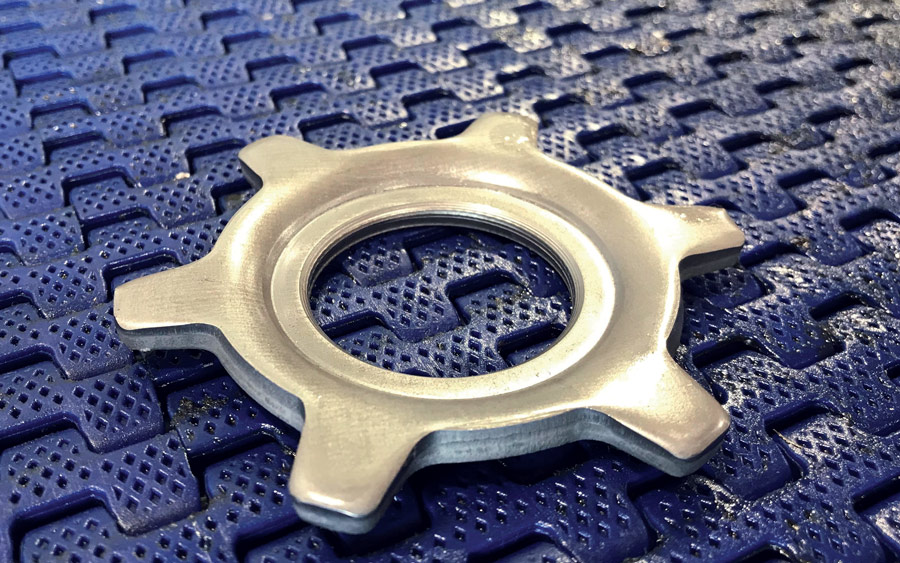
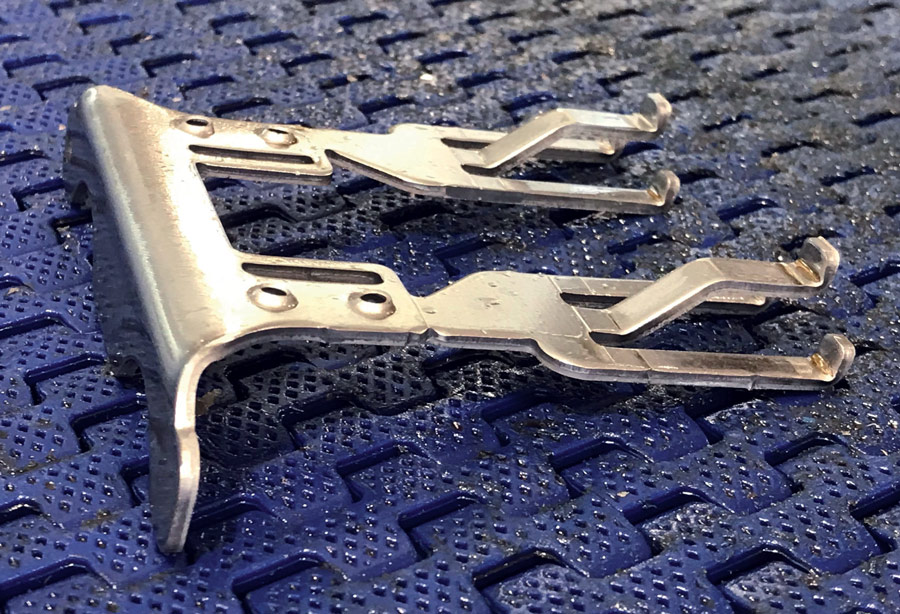
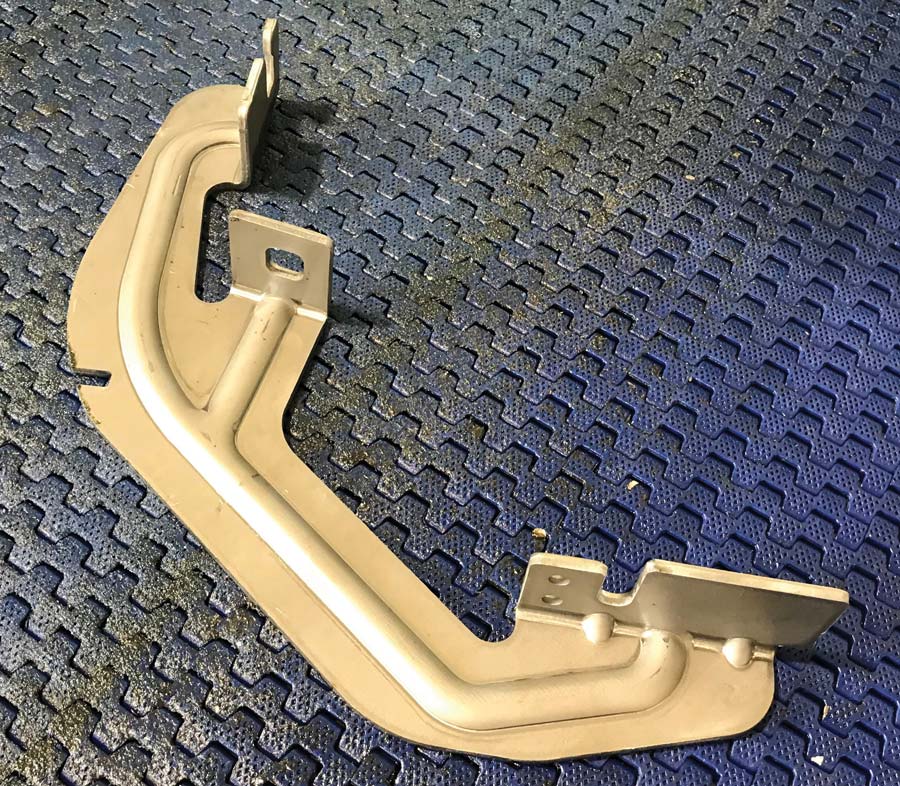
The servo press is also reshaping Engel Diversified’s tool design philosophy. Dwell mode has allowed the stamper to eliminate some stations from its progressive dies. Ram control minimizes shock and vibration, extending tool and punch life.
“We had to perform multiple draws on the hydraulic press to make the part,” Handzel explains. “We were able to transfer the part to the servo press and immediately eliminate one draw operation as well as a trim operation. We’re working on eliminating an outside annealing operation as well. We were able to free up capacity on our deep-draw hydraulic press and increase our capacity.”
AIDA’s pendulum mode works in tandem with the larger coiler to produce parts like an automotive running board bracket. With pendulum mode, the crank shaft swings back and forth, allowing the slide to travel less distance in the non-working portion of the stroke, boosting throughput while maintaining the same forming velocity in the working portion of the stroke. “Prior to the pandemic, we were producing 12,000 to 24,000 brackets per month,” says Rubin. “Production is beginning to pick back up, and we’re making the part on the servo press. We had some issues with wipe forming this part on a conventional press. When we processed it in pendulum mode, we found we could increase throughput by 60 percent.”
Inherited tooling is another by-product of the pandemic for the manufacturer. “Stampers are coming to us with parts and the tooling that goes with them,” he says. “There can be a lot of hiccups with inherited tooling. It can be challenging to hit the tolerances customers are looking for when you are working with 30-year-old tooling, for example. But the servo press gives us more control and helps us to get closer to those requirements than we ever could have with a mechanical press.”
Rubin believes servoforming is the way of the future for Engel Diversified. “We headed down this path and it turned out better than we imagined,” he says. “That doesn’t happen often. It’s kind of refreshing.”
